Field Day with Jordan: Grand Lake St. Marys Improvement
After decades of decline, how did the community pull together to push Grand Lake St. Marys in the right direction?
Read MoreThe Nature Conservancy's Farmer Advocates for Conservation Program provides payment to farmers in order to train and engage in outreach with their fellow local farmers to promote conservation practices.
Jordan Hoewischer is director of water quality and research with Ohio Farm Bureau. On his Field Day with Jordan Hoewischer podcast, he hosts conversations with experts and leaders who are helping to shape and secure the future of Ohio’s ag industry for generations to come.
On this episode, Hoewischer talks to Stephanie Singer, agriculture outreach project manager at The Nature Conservancy about the conservancy’s Farmer Advocates for Conservation Program. The program provides payment to farmers in order to train and engage in outreach with their fellow local farmers to promote conservation practices.
Stephanie Singer: My name is Stephanie Singer. I work for the Nature Conservancy and I’m on the agriculture team here and my focus area is the Western Lake Erie Basin and the state of Ohio.
Jordan Hoewischer: So we you know, from a Farm Bureau standpoint, we do a lot of work with TNC on a number of different projects. And one of the ones we wanted to kind of highlight this time around is the Farmer Advocates for Conservation program. Can you give us a little explanation of what the program is?
Stephanie Singer: The Farmer Advocates for Conservation project is a project where we are elevating the work of farmers who are building soil health on their farm and managing water in a sustainable way on their farm. And we are elevating their voices. So creating peer networks with other farmers who want to learn from each other. So we’re really excited.
Jordan Hoewischer: Why is that so important that we have farmers talking to farmers?
Stephanie Singer: We think it’s really important and it’s what we heard loud and clear from farmers that they wanted. They want to learn from other farmers who are doing the practices that we’re all recommending. And so what we’re doing with the Farmer Advocate for Conservation project is we’re actually taking applications for more farmer advocates right now, but currently we have 18 farmers who have gone through a training. And the great thing about it is that we have funding through the Great Lakes Restoration Initiative grant to pay the farmers to attend the training. And then the farmers also have the opportunity to be paid to continue to teach other farmers about what they’re doing.
Stephanie Singer: If you’re a farmer and you’re interested in maybe moving to no till or maybe thinking about incorporating cover crops on your farm or another best management practice, and you have questions about that practice. We want you to know that there is a farmer advocate that is willing to talk to you about that, another farmer who is doing these practices on their farm and who has signed up to be that person who is there to walk you through it. And if they can’t help you, then they they know other people that might be able to.
Jordan Hoewischer: I feel like really boiling it down to these one on one interactions or being able to do it on a phone call and not have to go up to somebody blindly at an event or something, that really helps create that connection from farmer to farmer. And I think that’s a real positive.
Stephanie Singer: Yeah, we’re really excited about it. We do have a website: farmeradvocatesforconservation.com. And if you go to that website you can see the 18 farmers that have gone through the project. You could see the county that they are located in. It is focused on the Maumee River watershed right now. So we do have one farmer that’s in Michigan and one that’s in Indiana, and the rest are scattered throughout the Maumee River watershed. On that website, it has the way to contact them and has some videos about them. So you could get to kind of know what their personalities like, to find out if it’s a person that might be a good match for you in the practices that they’re doing.
Jordan Hoewischer: So you’re looking for farmers right now to go through this next round of training. Walk me through what will be asked of them in terms of how they fulfill this training and kind of what benefits they get from doing this.
Stephanie Singer: Our next training will be taking place Aug. 9 and 10. It will be taking place at Sauder Village in Archbold in northwest Ohio. We just want (applicants) to be interested in it and actively working on that on your farm and also other thoughtful and sustainable water management techniques on your farm…the application is pretty simple. We just want to know about you, about your farm, about your practices, how long you’ve been doing them. So if you are interested and you want to go through the application process online, it’s pretty straightforward. But if you’d rather just talk to me, I’d be glad to talk to anyone. So then we do have a process where we approve farmer advocates. And so if you’re approved, then you would attend this training on Aug. 9 and 10.
We’re really excited about the training. Ray Archuleta is going to be there for the second day. All of the farmer advocates, all 18 of them, are going to be there. We have a little bit of what is new and upcoming in agriculture and soil health. But the training is really focused on how can a farmer, who is a farmer advocate, take what they’re doing and create messages and create techniques that will be effective in talking to other farmers and teaching other farmers. So it’s basically the training is centered on teaching farmers to elevate what they are already doing on their farm. So we’re not talking like you have to be doing this or you have to be doing this. It’s like, what are you doing? What’s working? How can you more effectively convey that to other farmers? And for those of you that know Ray Archuleta or have heard him talk, he’s made a name for himself in promoting soil health techniques. And so he’ll be there working with the farmer advocates for conservation, talking about how he gets ready for a talk, how he gets people excited about what he’s doing and how basically just his kind of communication style, sharing that.
Jordan Hoewischer: Yeah, that’s great because I feel like with our experience in the demo farms and other projects… We can have all these different pieces of equipment and expert speakers, but whenever that authentic, non talking point person jumps out of the tractor and just talks about what they’ve been doing at their farm, it’s always received very well by a number of different groups. So I think giving them a little juice on the communication side of things is really cool and I think that’ll help get them to be a little bit more expressive because that’s obviously a challenge with the average farmer.
Stephanie Singer: We have a pretty wide range of farmer advocates right now. Some of them are maybe a retired teacher or someone who’s already been doing a lot of advocacy, someone who’s really familiar with presentations. And so they kind of jumped right into it and kind of helped guide the discussion. And we have a whole other end of the spectrum of farmers who are, you know, I’ve never done this; I’m not comfortable doing it. And then we work on ways to just help them be more comfortable. And I think a few of them are really found that they didn’t think they were that comfortable, but they’ve enjoyed it and they’ve enjoyed the reaction that they get from other farmers in being able to share that knowledge. So it’s been really fun and exciting to see these farmers become more willing and excited to talk about their own farm.
Jordan Hoewischer: Another aspect that I’ve seen and it’s rare for for something like this, is that the farmers get paid for their time to be on the program. I think that’s a really cool aspect and I think it shows the value that their time holds and I think that’s really cool.
Stephanie Singer: Yeah, definitely…everyone’s time is valuable and we know farmers are very busy doing a lot of wearing a lot of hats. And so, that’s really what it’s designed to do is to make sure that they’re being compensated for their time that they’re taking to be trained, and also for every hour that they take after that to talk to other farmers, anything that they do as far as like if they did an interview or if they do any writing pieces for their local soil and water, all of that is compensated.
Jordan Hoewischer: That’s really cool on that because I mean, they’re generally their own boss and so no one gives them time off and no one pays them to do training typically. So I think it just shows the respect that the program has for the farmer and the farmer’s time and hopefully that allow for maybe younger and newer farmers to join the fold so that we can have a wide array of age and experience in this type of program.
Stephanie Singer: I should say that it is $30 an hour. The farmers, like I said, they get paid to do the training, to be part of the training, and then they self-report their hours to us after that of what they’re working on.
Jordan Hoewischer: Yeah, I think that’s pretty supportive.
Stephanie Singer: Yeah. And that’s all part of the project and how we support the farmers. You know some of them take right off. They know exactly what they want to do. They arrange some small group meetings. They’re talking to farmers one on one. Others, they enter the program and they’re like, okay, yeah, no farmers are coming to me. And so there’s where we help. And we’ve been getting requests since this project has started and other people know about it. We’ve been getting a lot of requests. ‘We’re having a field day. Can you have farmer advocates come and be on our panel?’ So we help facilitate that process if it’s not just happening naturally for them.
Jordan Hoewischer: So how are you guys measuring success? Is a just numbers of farmers that are in there? Hours trained? How are you measuring the effect that this is having?
Stephanie Singer: You know, ultimately, what we want is we want to be able to have a map of the Maumee River watershed and eventually all of Ohio, where anyone who was curious or who wanted a mentor or wanted to get advice from a experienced farmer would be able to look at that map. They’d be able to find a farmer right near them, and they’d be able to talk to that farmer, and the farmer would be available to them enough that they would feel comfortable implementing the desired conservation practices on their farm. So, I mean, ultimately that is what we want. We want farmers to be able to share knowledge, network with each other. That increases the comfort level and eventually ultimately increases the conservation happening.
Jordan Hoewischer: I know the the website again was farmeradvocatesforconservation.com and if you’re a leader, if you’re on either side of the fence– either if you want to be an advocate or you want to find somebody in your area–that’s where you would go to try to make a connection. Is there anything else I missed in terms of details about this project?
Stephanie Singer: I guess I’d just like to put one more plug in for our training on Aug. 9 and 10. If you’re interested at all, don’t delay it. This particular pot of funding and this particular portion of the project will be coming to an end at the end of 2023. So we’re looking to fill up this training. Like I said, it’s at Sauder Village. So, you know, you’re welcome to stay overnight. We’re paying for all of that. Bring the family. If you have someone, it’s a really nice facility where they would be able to enjoy themselves and you would be able to go to the training. And, you know, you can combine some family time with this this upcoming training. We have a great agenda. We’re really excited about it and we hope to get another really good group of farmer advocates trained.
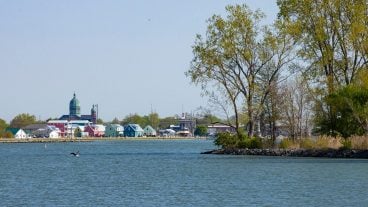
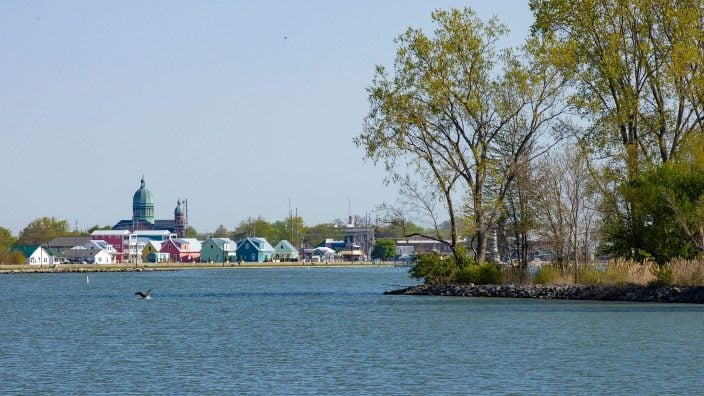
After decades of decline, how did the community pull together to push Grand Lake St. Marys in the right direction?
Read More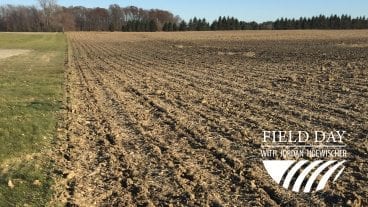
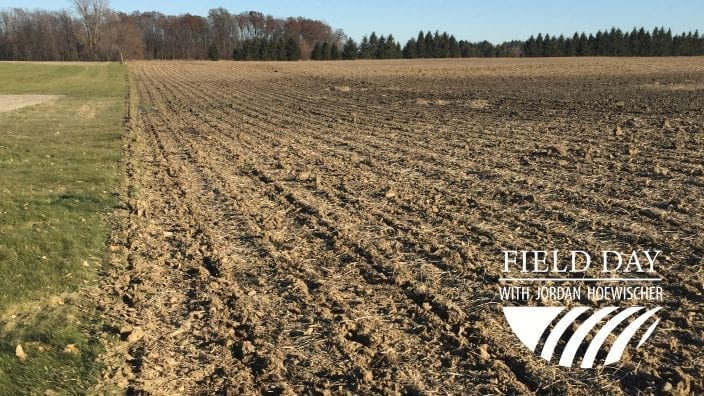
Ohio Farm Bureau Director of Water Quality and Research Jordan Hoewischer and Dr. Aaron Wilson discuss weather for the upcoming growing season, effects of climate changes and much more.
Read More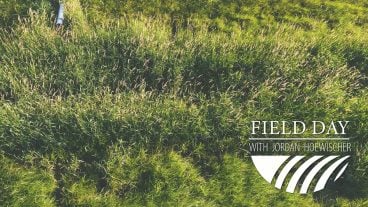
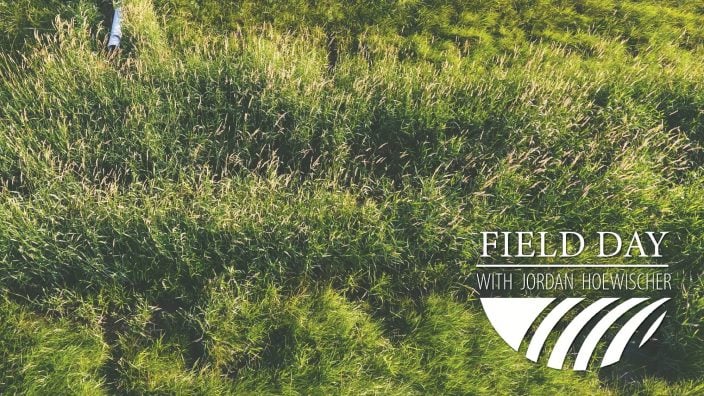
Hoewischer and Stephanie Singer, agriculture outreach project manager at The Nature Conservancy, talk about the conservancy’s Farmer Advocates for Conservation Program.
Read More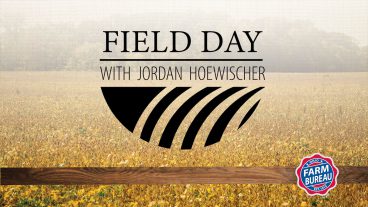
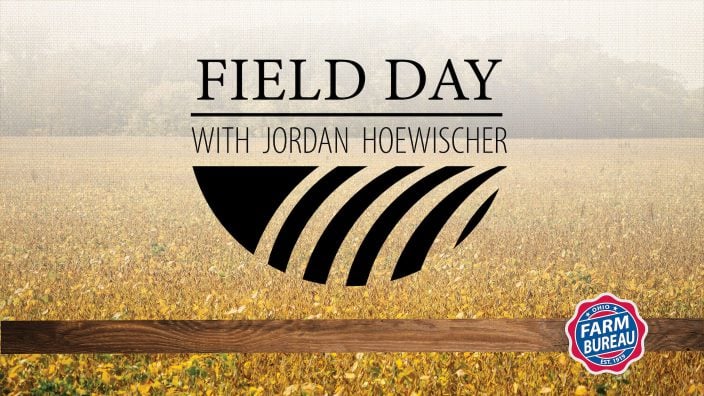
3Bar Biologics is a microbe delivery and manufacturing company that partners with microbe discovery and commercialization companies.
Read More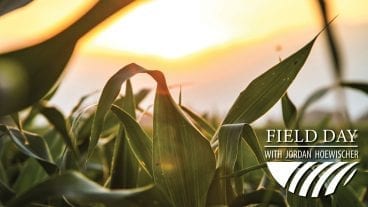
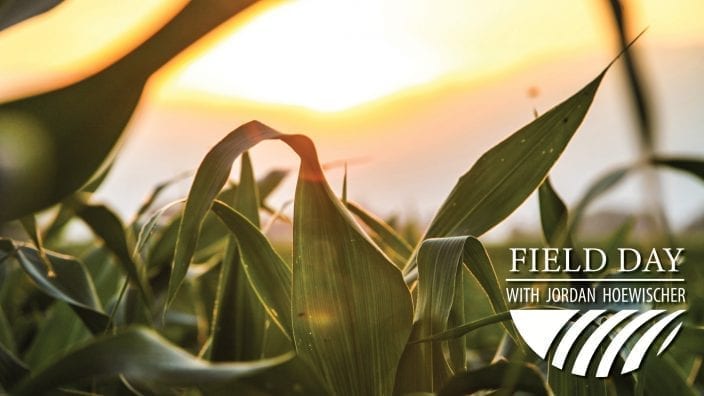
On this episode of Field Day with Jordan Hoewischer, we talk to Ty Higgins, senior director of communications and media relations at the Ohio Farm Bureau about the year that was 2021 and a look toward emerging topics of 2022.
Read More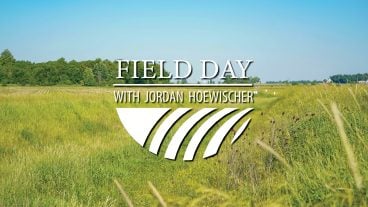
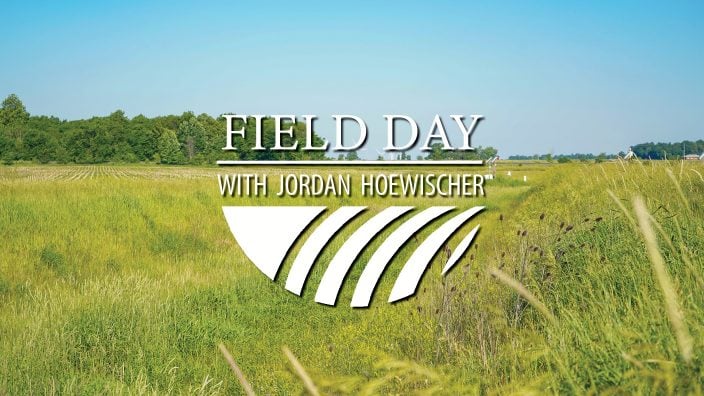
Dr. Jay Martin joins this episode of Field Day with Jordan Hoewischer to talk about some innovative projects in the Western Lake Erie Basin dealing with nutrient runoff and conservation practice adoption.
Read More

Aldyen Donnelly, co-founder of Nori Inc., is the featured guest on this episode. Donnelly and Hoewischer discuss all things carbon and what programming Nori offers for farmers interested in carbon sequestration.
Read More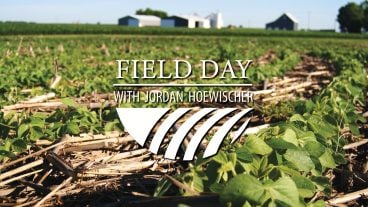
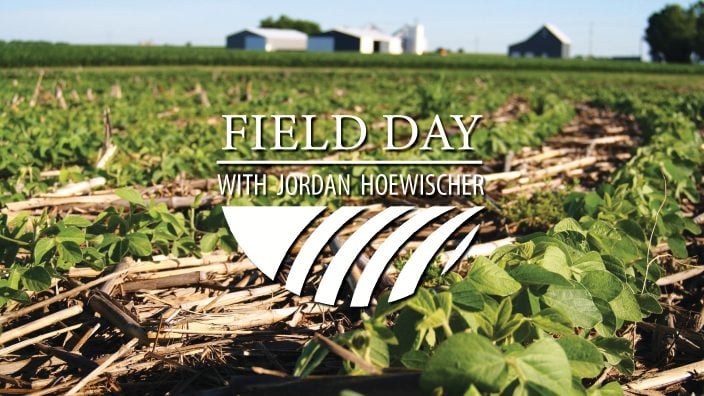
On this episode, Ohio Farm Bureau Director of Water Quality and Research Jordan Hoewischer talks with Amanda Bahn-Ziegler, account manager for Truterra, about their emergence in the carbon market space.
Read More

This episode is the first in a series that will help understand the breadth and depth of carbon program options for Ohio farmers.
Read More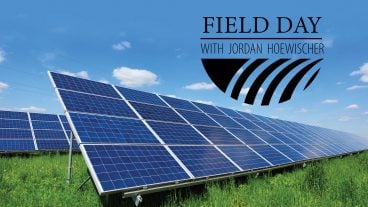
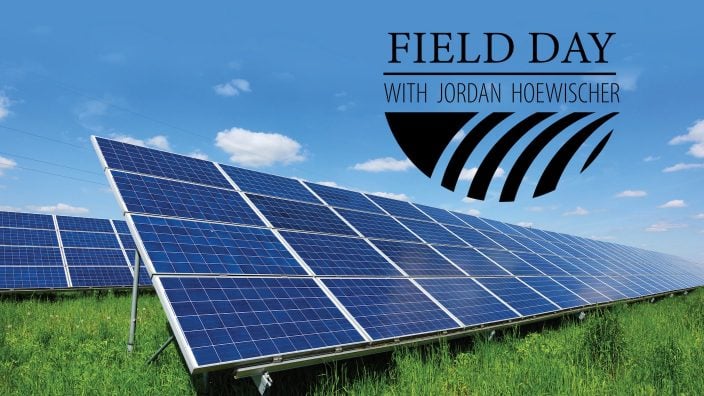
Jordan Hoewischer talks with Dale Arnold, director, energy, utility and local government at Ohio Farm Bureau Federation, about the growing solar farm movement in Ohio.
Read More